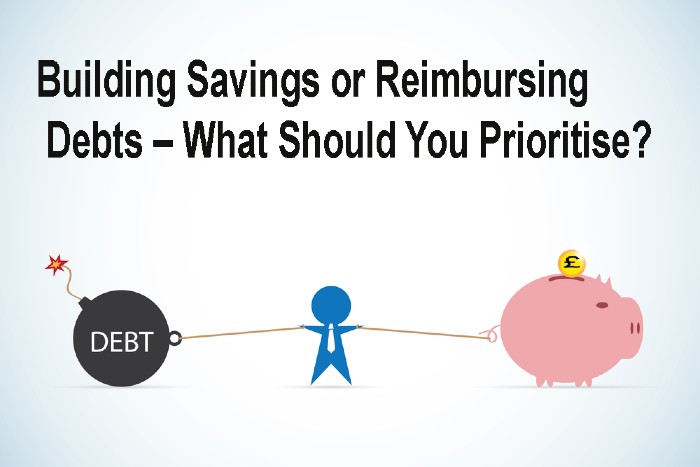
Building Savings or Reimbursing Debts – What Should You Prioritise?
If you contribute to your savings, your debt will continue to mount up, and if you do not set aside, you will have to take out a new loan for another unexpected expense – It seems like you are between the devil and deep blue sea. Choosing between building up emergency cushion and paying down debts has never been easier for borrowers.
Coming down on the one side of the fence is very critical as the decision depends on individual circumstances. You will be lucky if you have got enough money to contribute to both savings account and debts, but many people are to make hard choices. This concern usually arises when you take out an instalment loan like £5000 loan with bad credit and no guarantor and a long-term loan.
Put aside money when savings are nil
Paying down your debt is undoubtedly mandatory whether you build an emergency cushion or not. If you do not set aside money, you are likely to fall deeper in debt as you will not have money to meet any unexpected expenditure.
If you have some extra cash in your account, you can use it either to save or to pay off your debt. Using the whole of the amount to reimburse your debt may seem appealing to you, but wait. The rule of thumb says that you should transfer a proportion of your cash to savings account so that you do not run into taking out a new loan for other unexpected expenses. If your emergency cushion has three months worth of living cost, you can use extra cash to pay down the instalment.
Give priority to debt repayments
Financial experts suggest that you should pay off a debt when it comes to choosing between building up savings and repaying the debt. Any default will not only impair your credit score but also cost you late payment fees and interest penalties. This is when loans push you gradually on the verge of a debt spiral.
If you continue to pay down each instalment, you will get rid of your debt quickly and save money in the long run. Go for advance payment if your lender does not charge prepayment penalty. This helps paying the entire debt faster.
How to manage both
As you already know that how much amount you are going to pay every month toward your debt, common sense says that you should immediately put away that particular amount as you receive your monthly salary so that you do not fall behind repayments.
Add in all of your monthly expenses to know total outgoings. If you have left some cash after deducting all of your expenses, transfer them to the emergency cushion. If you fall short of cash, try to cut back on your spending.
Be careful with the use of your credit card. Make sure that you make all of your purchases with cash. If you use your credit card, try to pay off all dues as soon as possible to avoid interest charges. In the nutshell, whether you prioritise savings or paying off debt will depend on your financial circumstance.

Ailsa Adam is the Editor-in-Chief and former content head at Hugeloanlender. She has been a valuable member of the content strategy team since 2017 due to her abundant experience in the finance sector. Passionate about helping individuals navigate the world of loans and personal finance, she has dedicated herself to acquiring extensive knowledge on various financial products. Before her role at Hugeloanlender,
Ailsa worked as a seasoned journalist and writer, specialising in creating informative blogs and articles on diverse loan types. She is known for her meticulous research and commitment to delivering accurate and engaging content. She holds a degree in MBA Finance and has a keen interest in creative writing and art.




